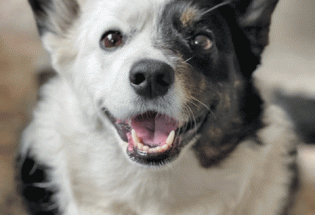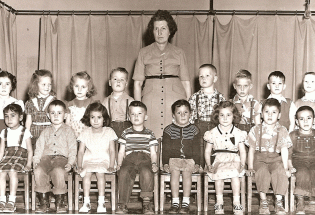After you say goodbye: grieving for a lost pet, part 3
“Grief is not a disease. It’s a part of being human, just like love.”
– Adam Clark, Institute for Human-Animal Connection, UDenver
Losing a beloved pet is painful, often deeply so. But in our society, the depth and reality of our feelings of loss for a pet who has died are often not acknowledged or validated as they are when a human companion dies.
This is called “disenfranchised grief.” Experiencing it can hurt as much as the loss itself.
“The human-animal bond is a powerful one,” said Maria Gore, director of operations and program services at the Argus Institute at Colorado State University. “We often spend more time with these furry, wonderful spirits than with our family members.
“We’ve come a long way globally incorporating pets as family members, but still have a long way to go. It’s still not acceptable to grieve a pet in the same way as a family member. There’s no obituary, memorial services and often we don’t receive support or even offers of support. This has a huge mental health impact.”
“We feel pain deeply,” said Adam Clark, “but people say it was just a dog, you can get another. They wouldn’t say that about grandma.” 
People who have lost a pet may feel like they’re going crazy, that if they start crying they won’t be able to stop, or that if they allow themselves to feel the pain they will become overwhelmed by it.
“It’s like walking through peanut butter,” Clark said. “Every step is hard, but it gets easier as the body releases the feelings.”
“People think something is wrong. They say, I shouldn’t be grieving so much. They think it’s bad.
Grief is very real and in depth,” said Erin Allen, clinical support service director at the Argus Institute. “Grief is universal but individualized in how we go through it. Tend to yourself, be kind, look for resources you need and give yourself validation.”
“It’s a significant loss and we as a society don’t really honor and give space to pet loss in a way that we should,” said Gore. “We are inherently good people and our intentions are good, but we may not know how to respond.”
It’s important to learn who you are comfortable sharing your feelings with. She recommends being direct with people. For example, tell people “I need you to understand this is a big loss.”
Specific and direct communications give power where you feel powerless and gives guidance to others on how they can help, she said. People can also write a sentence that will help them exit a conversation where they experience an insensitive comment. “Keep it in your back pocket so you don’t say things you will regret later.”
If people make a comment that is not consistent with your religious beliefs, such as saying the pet has gone over the Rainbow Bridge and you don’t believe in an afterlife, it’s okay to make a statement about your beliefs.
Sometimes the grief is so intense it is helpful to speak to a counselor. If the grief is affecting your daily life, you’re missing a lot of work days, can’t get out of bed, are drinking too much, or the loss is negatively impacting your relationships, for example, those are big signs you need additional support, she said.
Children grieving the loss of a pet also need guidance and support.
“Give them a voice to ask their questions,” said Allen. “Death is an obscure idea till around 9 or ten years of age. They may fear they too will die, or that their parents will.”
“Don’t lie to young kids, some will not understand,” said Gore. Saying something like “Fluffy is going to sleep for a long time” confuses them and may make them afraid that if they go to sleep they won’t wake up. “Remember their imagination can be far worse than the truth.”
“Kids keep it real,” said Allen. “Answer truthfully and be prepared for absolutely anything.”
The loss can be especially hard for seniors, who may be isolated if they don’t have a lot of family support, said Gore. They can get help from a support group or phone consult with a grief counselor. “Anticipate your need and look for resources,” she said.
People who have lost a service animal have not only lost an emotional attachment but functions they depended on the dog to do. They may also feel bad about reaching out for a new service animal because it is replacing the one they loved.
“But it’s a necessity,” said Gore. “If you have someone who can help or advocate for you, you don’t have to make the calls.”
How friends and family members respond to someone who has lost a pet can make a big difference.
“Treat the loss like you would a human loss,” said Jessica Pierce, a bioethicist. “Send a card expressing sympathy, flowers, a plant, or a text message that says ‘I’m so sorry.’ Share memories about what was special about the animal. Affirm that grief is real, and that their animal matters.”
“Let pet parents know you give them permission to do what they need to do to honor their pet friend,” said Coleen Ellis, a “pet loss pioneer.”
“Ask the person about their animal, what the pet meant to them, what kind of hole he left,” she said. “Really listen. Ask the person, ‘share him with me’ and don’t make any judgements. Be animal-like, give them unconditional love.”
Resources
Caring Pathways
Available 24/7
info@caringpathways
308 Mountain View Dr #B
Berthoud, Colorado
Argus Institute
Helping children with pet loss – Veterinary Teaching Hospital
https://vetmedbiosci.colostate.edu/vth/animal-health/helping-children-through-pet-illness-and-death/
Adam Clark blog on Animal Attachment
https://www.psychologytoday.com/us/contributors/adam-clark-lcsw-aasw
Jessica Pierce blog Psychology Today
https://www.psychologytoday.com/us/contributors/jessica-pierce-phd
Books for more information:
The Last Walk: Reflections on Our Pets at the Ends of Their Lives
by Jessica Pierce, PhD
Forever Friend: A children’s guide and activity book for saying goodbye to a special dog
by Mary Gardner and Coleen Ellis
Hospice and Palliative Care for Companion Animals:Principles and Practice
by Amir Shanan
- November, 23 2022

Health officials discuss rising respi...
Health officials provided a community update at the county and state level on the current...
- August, 23 2023

First West Nile Virus Death Confirmed...
Special to the Surveyor The Larimer County Department of Health and Environment (LCDHE) has confirmed...
- December, 09 2021

Health officials urge residents to se...
The Larimer County Department of Health and Environment (LCDHE) urges residents who have symptoms of...
- November, 10 2022

Overpowering pain: A family’s quest f...
Just seven months ago, Berthoud resident Markli Sommers was a happy, healthy, hard-working, 20-year-old, pursuing...
- July, 01 2021

Larimer County health officials warn ...
Larimer County Health officials are alerting residents to the presence of the highly contagious B.1.617.2...
- October, 21 2021

Masks in public indoor spaces once more
Friday, Oct. 15 the Larimer County Department of Health and Environment (LCDHE) announced they would...
- Asher Architects builds projects from...

- More than a market, a family legacy

- Colorado business confidence is impro...

- Unified basketball comes to Turner Mi...

- Thompson School District reviews bond...

- Roy Tripi to become principal of BHS ...

- Community Calendar & Legal Notice...

- Community Calendar & Legal Notice...

- Community Calendar & Legal Notice...


Unified basketball comes to Turner Middle School
Community News

Mike Grace says goodbye as Brett Wing joins town board
Community News
POLICEBLOTTER
Community News
Northern Water sets C-BT quota at 70% for 2024
Community News

Emotions run high during Revere Property hearing
Community News
Snowpack at 119% above normal
Community News

Karspeck to serve third term as Berthoud mayor
Community News
COMMUNITY CALENDAR:
Community Calendar – add an event
Homestead Fine Art Gallery First Fridays OPEN HOUSE
03 May 4:00 PM - 7:00 PM
Homestead Fine Art Gallery First Fridays OPEN HOUSE
07 Jun 4:00 PM - 7:00 PM
Homestead Fine Art Gallery First Fridays OPEN HOUSE
05 Jul 4:00 PM - 7:00 PM
Homestead Fine Art Gallery First Fridays OPEN HOUSE
02 Aug 4:00 PM - 7:00 PM
Homestead Fine Art Gallery First Fridays OPEN HOUSE
06 Sep 4:00 PM - 7:00 PM
Homestead Fine Art Gallery First Fridays OPEN HOUSE
04 Oct 4:00 PM - 7:00 PM









